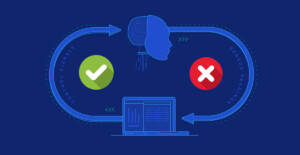As the holidays, approach we find ourselves swiping our credit cards more and more often. Yet, with every swipe, we don’t think of the risk we incur. For anyone who has experienced identity theft, you can attest to the time, stress & anxiety of trying to rectify your accounts. Without taking the proper security precautions for each use, especially online, you are vulnerable to identity theft.
During a recent water cooler chat at tech42, we discussed our own personal experiences with identity theft as well as some precautions we take to protect our information. It is important that you monitor your accounts year-round and are aware of the tools that can help you improve your overall personal security.
Scammers, the bad guys, often use your personal information in a variety of ways – ALL of which can impact your finances and sense of security. It is not uncommon that scammers use your information for applying for credit cards or loans, open bank accounts, use your name on forms. The most common of the group – shopping sprees! Here are a few ways that you can start to protect yourself from these scammers today:
- Use a security software – A software like LifeLock is extremely useful to monitor your accounts and alert you of any suspicious activity. This is an especially useful tool if you are aware of any breaches to your personal accounts or any companies that you have accounts through.
- Don’t put personal information on-line – Social media websites often ask for your birthday and publicly display it for anyone to see. This is a very easy way to obtain personal information that you may not realize. Never provide personal or financial information to any websites, unless they are secure. When a web address starts with “https” it is secure.
- Change your passwords regularly – Changing your on-line passwords regularly will help to safeguard your accounts from hackers. It is recommended that you update your passwords quarterly (every 3 months) to ensure that your information is not being used elsewhere. It is important to use randomized passwords so that individuals who know personal information about you can not guess your passwords.
- NEVER use a debit card to pay – When a fraudulent charge is caught on your credit card you can have it investigated and typically are not responsible for the charges. When you have a fraudulent charge on your debit card the money is automatically withdrawn and gone, which could end up being your entire bank account. If you pay your bills through this account you may not have the funds for rent, electric, loan payments, etc. while the charges are being investigated. We recommend that if you are going to use a debit card you withdraw cash at your bank and use that instead.
Unfortunately, even taking precautionary security measures doesn’t mean we are safe. Scammers are always changing their methodologies to attack the end consumer. If you find yourself in a scenario in which you think your identity is being falsely used, here are a few concepts to help yourself:
- Report the occurrence on IdentityTheft.gov – This page was set up by the Federal Trade Commission to assist in the process of recovering from identity theft. They will work with you to create a personal recovery plan and walk you through each step of the process to recover all your accounts and personal information.
- Contact a credit bureau and freeze your credit reports – If you believe that your accounts have been compromised your first course of action is contacting all your financial accounts. Start by contacting one of the major consumer credit bureaus, Experian or TransUnion, and request a freeze on your credit reports. This will help to prevent other accounts from being opened in your name. When you freeze your credit a fraud alert is also attached to your accounts and credit report which will alert lenders of the previous fraud. There are different lengths of time for the fraud alert to appear on your credit report depending on the severity of the breach.
It is imperative to know how to protect yourself through technology you use daily, as well as the resources available for protection and rectification. We always remind our clients to secure their online accounts and be aware of the threats that are out there. A useful resource to check out is www.myidcare.com, providing a vast amount of resources for identity theft and protection. As always, we are here for you whenever you may have questions regarding your online security.







